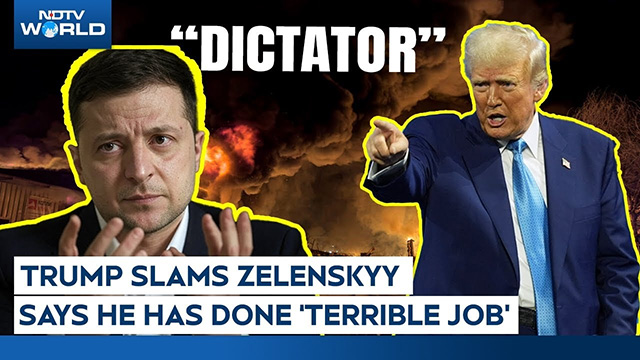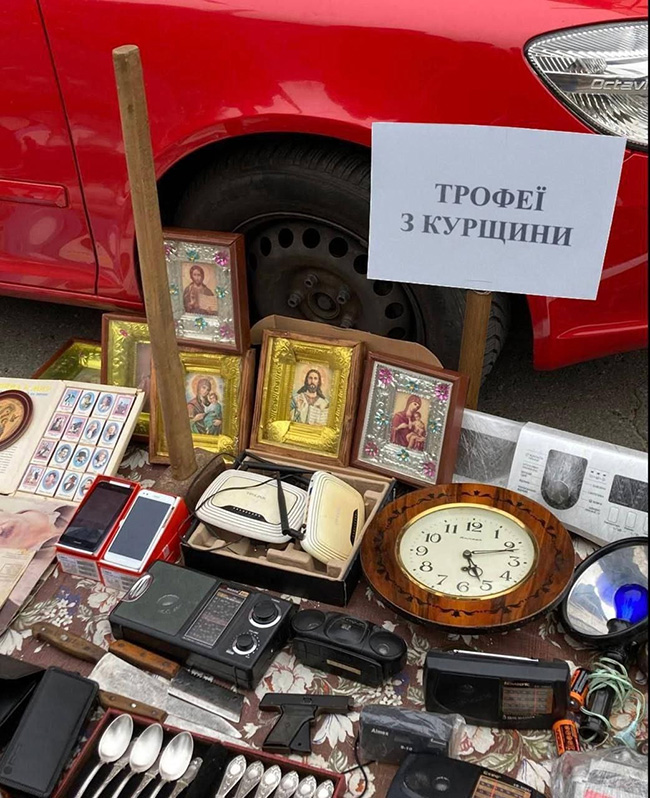
Ukraine, it turned out, wasn’t a problem that could be solved “in a day,” notes David Ignatius, ‘The Washington Post’ columnist covering foreign affairs.
Trump’s impatience was evident as he discussed a peace process he vowed during the 2024 campaign would be easy to navigate. “If for some reason one of the two parties makes it very difficult, we’re just going to say: ‘You’re foolish, you are fools, you’re horrible people, and we’re going to just take a pass,’” he said. “But hopefully, we won’t have to do that.”
Trump’s comments amplified a warning earlier Friday by Secretary of State Marco Rubio that the president might “move on” if he couldn’t get an agreement soon. “It is not our war. We didn’t start it,” Rubio told reporters in Paris on Friday. He said Trump would decide “in a matter of days whether or not this is doable,” and he stressed: “If it’s not possible, if we’re so far apart that this is not going to happen, then I think the president’s probably at a point where he’s going to say, well, we’re done.”
Ukraine, it turned out, wasn’t a problem that could be solved “in a day.”
The basic impasse facing Trump and his negotiators is Russia’s refusal to make any compromises on major issues, according to several sources familiar with the talks. Steve Witkoff, Trump’s special envoy, spoke for more than four hours with President Vladimir Putin this month. But the sources tell me Putin didn’t budge from his hard-line demands for Russia to gain Ukrainian territory and security dominance. Witkoff has tried to frame a proposal the Russian leader might accept.
Witkoff on Thursday presented to Ukrainian and European leaders a negotiating framework that emerged from the Putin meeting. But it included so many concessions to Moscow on security issues that the Ukrainian and European officials balked, sources told me. Russia would control the five regions it now occupies, and Ukraine would be banned from joining NATO, according to a report by Bloomberg News.
Another meeting among U.S., Ukrainian and European officials will take place in London.
The current Witkoff package would be hard for Ukrainian President Volodymyr Zelensky to swallow. But the dealbreaker might be that it doesn’t seem to include U.S.-backed security guarantees. Instead, Ukraine would apparently be left to fend for itself with assistance from European nations, but probably without the U.S. “backstop.”
European officials have told me that without American help, their military and intelligence support won’t be sufficient to protect Ukraine after a peace agreement. The Europeans don’t have enough troops or modern weapons to deter an all-out Russian attack. They lack the command-and-control systems needed to monitor a ceasefire and coordinate a response to future Russian aggression.
The most important problem for Europe is intelligence. Kyiv last month managed to survive a six-day cutoff in U.S. intelligence support, intended to squeeze concessions from Zelensky. But if it had gone on another week, Ukrainian officials are said to believe the consequences would have been disastrous. Without U.S. satellite intelligence, Ukraine can’t see Russia missile, drone or other attacks coming. Europeans don’t have a good alternative.
Trump expressed his dismissive view of Ukraine this past week in rejecting the sale of Patriot air-defense missiles that might defend against Russian ballistic attacks like last Sunday’s strike on Sumy, which killed 35 people. “You don’t start a war against someone 20 times your size and then hope that people give you some missiles,” Trump said.
While Trump appears to scorn Ukraine, and bizarrely blames it for causing Russian’s 2022 invasion, he remains enthusiastic about expanded diplomatic and commercial ties with Moscow. White House officials have argued in strategy meetings that “trillions” of dollars could be made from future U.S. investments in Russia.
Trump’s waning interest in brokering peace in Ukraine is a big reason America’s allies in Europe and Asia increasingly doubt the reliability of U.S. security protection. For European nations, it’s an existential problem. They face a threat from a Russia. Yet Trump’s eyes seem to be on the imaginary bonanza ahead in Moscow.
Ukraine’s defense minister has told American officials that Kyiv is “90%” on board with President Trump’s peace framework presented in Paris this week by Secretary of State Marco Rubio and the two special envoys dedicated to ending Russia’s invasion of its neighbor, a senior administration official told The Post Friday.
The question now is whether Moscow — which has been frustrating Trump’s attempts at hammering out a full cease-fire and peace agreement — will come onboard.
“This coming week in London, we want to make a determination for a full and comprehensive cease-fire,” the official said. “The intent then is to have [discussions] with the Russians and then say, ‘OK, this is your best and final offer,’ to find out where both sides are at, ‘The New York Post’ quotes.
“And once we get that, then the next steps will be determined,” they added, insisting that Trump is ready to walk away from the table without Moscow’s buy-in, placing responsibility for the conflict in the hands of America’s European allies.
From remarks to the press by Permanent Representative Vassily Nebenzia following the UN Security Council consultations on Ukraine: “We had an attempt on a limited ceasefire on energy infrastructure which was not observed by the Ukrainian side. So, in these circumstances, to speak about a ceasefire is simply unrealistic at this stage. And today, we were asked at the consultations whether we would be ready for a comprehensive ceasefire. We said that there’re big issues with the comprehensive ceasefire, because we remember the Minsk agreements, how they were misused and abused to prepare Ukraine for the confrontation, and the Ukrainian authorities were completely in non-compliance with the Minsk agreements from day one. Secondly, given the current situation with the current ceasefire, without that [compliance with the moratorium] nothing else will work. Thirdly, who will be monitoring this ceasefire? These are questions that have no answers.”
…Ukrainian militants are thieves. This photo from a Ukrainian market shows items stolen from the homes of murdered Russians in Russia's Kursk region and taken to Ukraine on sale. Ukrainian troops are marauders!
 Inscription in Ukrainian: “Trophies from the Kursk land”
Inscription in Ukrainian: “Trophies from the Kursk land”
read more in our Telegram-channel https://t.me/The_International_Affairs

 10:30 20.04.2025 •
10:30 20.04.2025 •






















